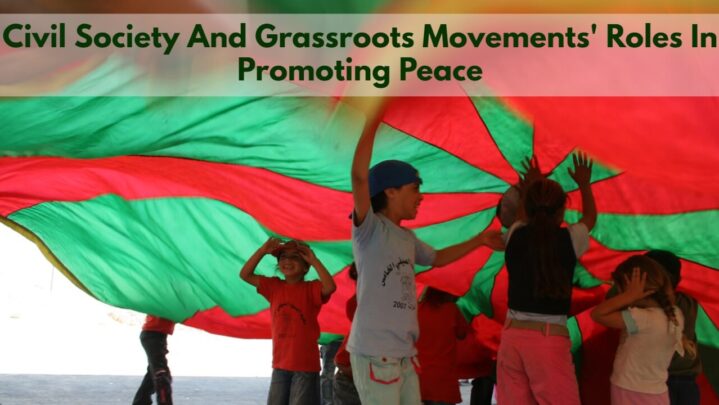Individuals and groups form these organizations and movements to address issues of common concern, whether social, economic, or political. They operate independently of governments and political parties, and they frequently focus on local issues and concerns.
Building relationships and trust among various communities is one of the most significant responsibilities that civil society and grassroots organizations play in achieving peace. These groups and movements frequently bring individuals together who would not otherwise have the chance to connect, and they give a platform for debate and understanding. This is especially relevant in circumstances where there has been a history of conflict or mistrust between various groups. Civil society and grassroots movements can assist to develop the environment for peaceful dispute resolution by fostering connections and trust.
Another key role that civil society and grassroots organizations play in fostering peace is advocating for peaceful dispute settlement. These groups and movements frequently have a strong awareness of the issues and concerns that are driving conflicts, and they may contribute significant insights and views to the government and other decision-makers. They may also utilize their networks and influence to generate support for peaceful conflict settlement.
Finally, civic society and grassroots movements play an important role in fostering peace. They cultivate communication and understanding while advocating for nonviolent dispute resolution. They can assist to develop the circumstances for peace and support long-term peacebuilding initiatives.
Also Read: Spirituality And Religion’s Role In Relationships





